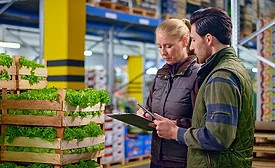Best Practices
From Corporate to Corner Store: Retail Food Safety Practices in Small Businesses and How They Compare with Large Brands
Small businesses show positive signs of managerial engagement and understanding of food safety principles but face challenges in implementing formal Food Safety Management Systems
October 7, 2025
Never miss the latest news and trends driving the food safety industry
Newsletters | Website | eMagazine
JOIN TODAY!Copyright ©2026. All Rights Reserved BNP Media.
Design, CMS, Hosting & Web Development :: ePublishing













